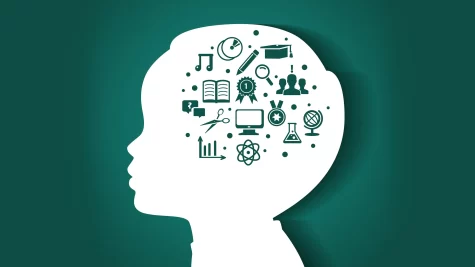Are They Still Using Scare Tactics?
Health classes feature a diverse group of presenters who talk about important aspects of our lives that can be serious risks to our mental and physical health. The most common presentations we see are on drugs and alcohol, two major issues that are increasingly prevalent in teenagers. Either people who have suffered from addiction, who have known someone who was an addict, or who help rehabilitate addicts talk to us about their negative effects on our bodies. However, some do not see this as education, they see it as scaring students away from drugs and alcohol.
“You know, scare tactics don’t work and actually lead people to drug use, right?” – Most Teenagers
But, how are the presentations given to us scare tactics?
When a person is using scare tactics, they are trying to make us fear drugs and alcohol (or other potentially dangerous activities) so we will stay away from them. In the film Mean Girls this is made fun of to show the inefficiency and hypocritical nature of this approach. In this type of anti-drug tactic we are usually shown the absolute worst things that can happen to us: Images of heavy drug abusers, fatal car crashes, and any other image that may shock us. Scare tactics is not education. If our health class presenters employed scare tactics, we would not be given accounts from people who have actually suffered from addiction, we would only be told of how drugs are illegal and can kill us. That is where our health class presentations are different.
In these presentations our speakers are not there to strike fear into us, they wish to educate us instead. We are given first-hand accounts of addiction and the pain it causes, but we are not told to fear drugs and alcohol. A group of speakers who had all suffered from addiction did not say, “Do not do drugs ever in your life,” and while they spoke against drugs, they also told us about the many options people have if they ever find themselves in a position where they need help. They explained to us how sober houses and meetings are filled with people who are patient and ready to be supportive. This is the complete opposite of scare tactics, this is educating students on bad situations they might find themselves in. We are told about the affect their addiction had on their personal lives, not to make us scared, but to make us consider the affects of our actions on others. One presenter was a mother who had lost her son to addiction. She did not try to make us fear heroin and other drugs. Instead, she wanted us to know how important it was to be knowledgeable about addiction, and to make sure we do not become enablers. All of the health presentations are done for the purpose of educating us to make better decisions. They are definitely not done to scare us away from drugs. We are given the necessary information to make good choices and on what to do if we are ever in a position where we have made a bad one.
Our health classes are made to educate, not to scare. There is a large difference between the type of presentations we receive in health and the stereotypical D.A.R.E. officer speeches. We need to understand why we have these visitors or else their points are lost. SCADD came to tell us about how we can get help, not fear drugs. Health class is here to teach us about making good decisions and other necessary knowledge for the rest of our lives. If we see it as there to scare us away from doing things, then we are completely missing the point.





